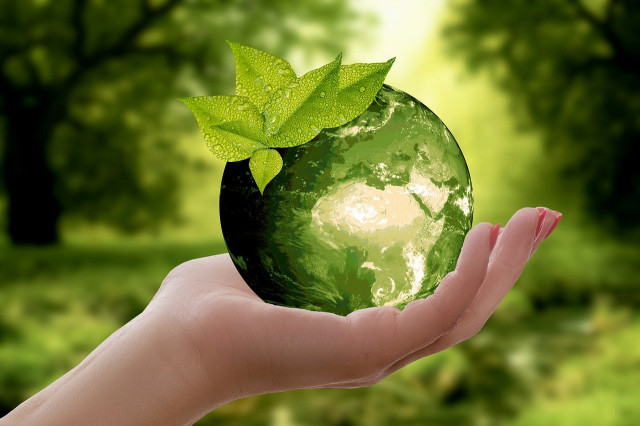10 Benefits of Recycling
Recycling is a crucial practice that not only helps in preserving the environment but also brings numerous benefits to our society. In this comprehensive guide, we will explore the top 10 benefits of recycling and highlight the positive impact it has on our planet and future generations.
Environmental Conservation
One of the primary benefits of recycling is its positive impact on the environment. By recycling materials such as paper, plastic, glass, and metal, we can significantly reduce the amount of waste sent to landfills. This, in turn, helps in conserving natural resources, reducing pollution, and minimizing the energy required for production.
Energy Conservation
Recycling plays a vital role in conserving energy. It requires less energy to process recycled materials compared to extracting and refining raw materials. For example, recycling aluminum cans saves up to 95% of the energy required to produce new ones. By recycling, we can contribute to the reduction of greenhouse gas emissions and combat climate change.
Reduction of Landfill Waste
Recycling helps in reducing the amount of waste sent to landfills. Landfills are not only unsightly but also emit harmful gases and leachate that can contaminate soil and water. By diverting waste through recycling, we can extend the lifespan of landfills and minimize the need for new ones, preserving valuable land resources.
Conservation of Natural Resources
Another significant benefit of recycling is the conservation of natural resources. Many materials, such as paper, plastic, and metal, are derived from limited resources like trees, petroleum, and ores. By recycling these materials, we can reduce the need for extensive extraction and preserve these resources for future generations.
Reduction of Pollution
Recycling plays a crucial role in reducing pollution. The manufacturing process of new products often involves the release of harmful pollutants and greenhouse gases into the atmosphere. By recycling, we can minimize the need for new production, thereby reducing pollution levels and creating a cleaner and healthier environment.
Creation of Jobs and Economic Growth
Recycling not only benefits the environment but also contributes to job creation and economic growth. The recycling industry requires skilled workers for collection, sorting, processing, and manufacturing. By supporting recycling initiatives, we can stimulate the economy, create employment opportunities, and promote sustainable development.
Preservation of Wildlife and Ecosystems
Recycling helps preserve wildlife and ecosystems. Irresponsible waste disposal can harm animals, destroy habitats, and disrupt delicate ecosystems. By recycling, we can reduce the demand for raw materials and protect natural habitats, ensuring the survival of various species and maintaining the delicate balance of our ecosystems.
Reduction of Greenhouse Gas Emissions
Greenhouse gas emissions contribute to global warming and climate change. Recycling plays a crucial role in reducing these emissions. By recycling materials, we can minimize the need for energy-intensive production processes that release greenhouse gases. This helps in mitigating climate change and creating a more sustainable future.
Promotion of a Circular Economy
Recycling is an essential component of a circular economy. In a circular economy, resources are used efficiently, and waste is minimized. By recycling, we can close the loop, ensuring that materials are reused, repurposed, or recycled instead of ending up in landfills. This promotes a sustainable and regenerative economic system.
Individual and Collective Responsibility
Lastly, recycling promotes a sense of individual and collective responsibility towards the environment. By actively participating in recycling programs, we can contribute to the well-being of our planet and inspire others to do the same. Recycling empowers individuals to make a positive impact and create a more sustainable future for generations to come.

Recycling offers a multitude of benefits that extend beyond waste reduction. From environmental conservation and energy savings to job creation and economic growth, recycling plays a vital role in creating a sustainable future. By understanding the importance of recycling and actively participating in recycling programs, we can make a significant difference in preserving our planet for future generations.
Frequently Asked Questions about the Benefits of Recycling
1. Why is recycling important?
Recycling is important because it helps conserve natural resources, reduces pollution, and saves energy.
2. How does recycling conserve natural resources?
By recycling materials such as paper, plastic, and metal, we can reduce the need for extracting and processing raw materials from the Earth.
3. Does recycling help reduce pollution?
Yes, recycling helps reduce pollution by decreasing the amount of waste that ends up in landfills or incinerators, which can release harmful substances into the environment.
4. What are the energy-saving benefits of recycling?
Recycling saves energy because it requires less energy to process recycled materials compared to producing new ones from raw materials.
5. Can recycling help combat climate change?
Yes, recycling can help combat climate change by reducing greenhouse gas emissions associated with the extraction, production, and disposal of materials.
6. How does recycling benefit the economy?
Recycling can create jobs, stimulate local economies, and reduce the costs of waste management for communities.
7. Does recycling save landfill space?
Yes, recycling helps save landfill space by diverting waste materials from disposal sites, allowing them to be reused or repurposed.
8. What are the environmental benefits of recycling?
Recycling reduces the need for resource extraction, conserves water, protects ecosystems, and helps preserve biodiversity.
9. Can recycling help conserve water?
Yes, recycling can help conserve water by reducing the water consumption associated with the production of new materials.
10. How can individuals contribute to recycling efforts?
Individuals can contribute to recycling efforts by properly sorting and disposing of recyclable materials, supporting recycling programs, and advocating for sustainable practices.




